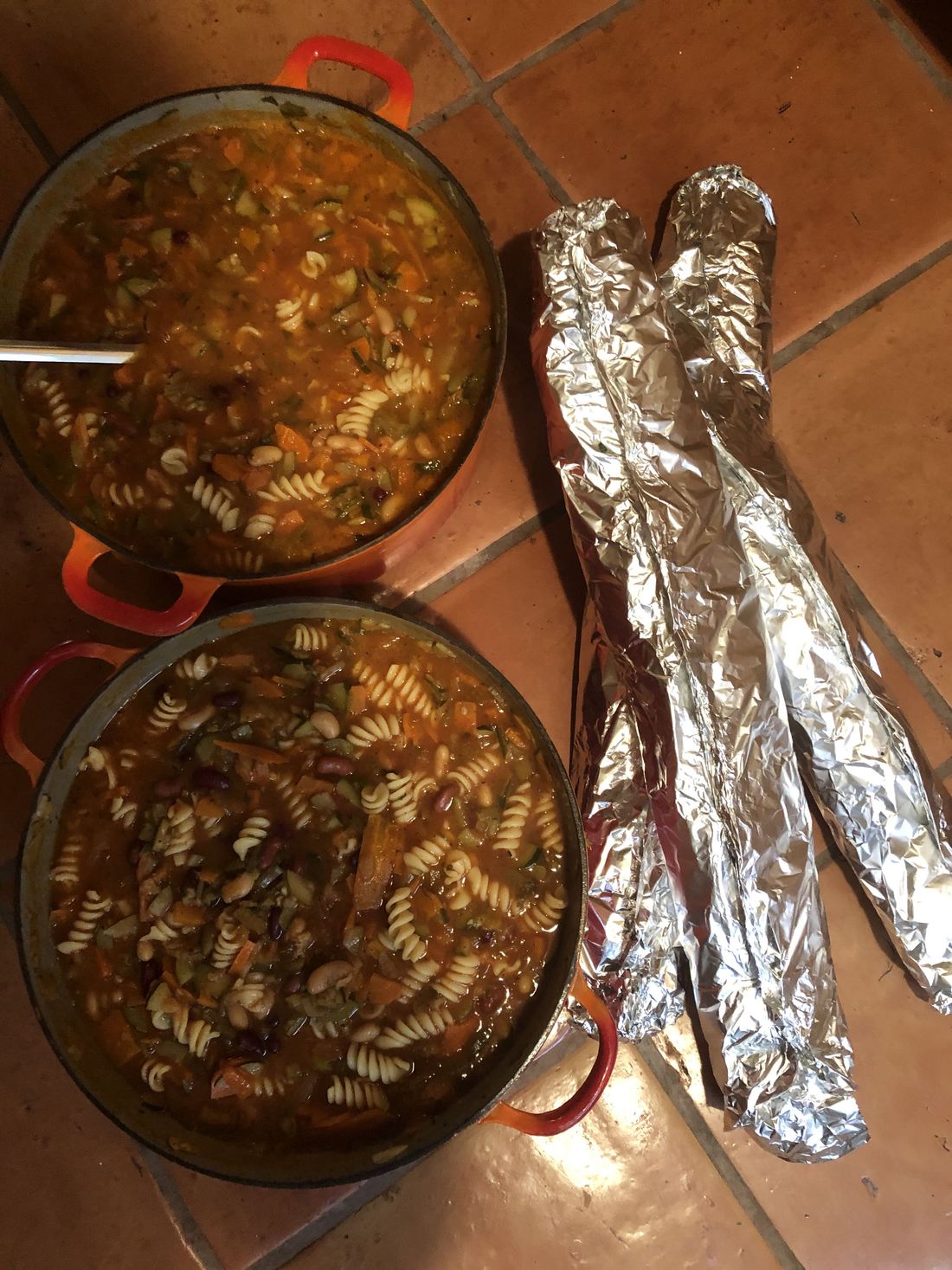Dr. Greenwald Leads the Ellington Project
In light of the COVID-19 pandemic, history teacher Dr. Lisa Greenwald has helped her community by leading the Ellington Project, centered around donating to those in need.
Reading Time: 3 minutes

Since the beginning of spring 2020, history teacher Dr. Lisa Greenwald has led the Ellington Project, which delivers food, clothing, toys, and toiletries to the homeless shelter Hotel Ellington. The building, now managed by New York City’s Department of Homeless Services, has been serving the homeless community for over 19 years. Dr. Greenwald has recruited 120 volunteers to help collect various donations for the shelter. Some have donated money, cooked, or baked food to contribute.
Dr. Greenwald started the initiative in March 2020 after New York City public schools closed. “I remember reading about how things were getting worse for a variety of people and I was inspired to read about other people and how they were trying to help,” she said.
She garnered inspiration to start the Ellington Project from her cousin, who worked as an X-ray technician at a local hospital at the time. “I started thinking that well if my cousin can be doing that and risking his life every day, I should get off my butt and do something for other people,” Dr. Greenwald said.
Dr. Greenwald started contributing by cooking a meal for Hotel Ellington each week. From here, the project grew quickly as she spread the word in her neighborhood by hanging flyers to inform the community that she was collecting donations for the shelter. “There’s a lot of disparity in the city. There are people who have too little and people who have more than enough, and the people who have more than enough are frequently more willing to give to the people who have less, they just don’t know how. So this is a way to do it. And that gives me a lot of satisfaction, to be that conduit,” she said. “If I just cooked the meal, [that] would be okay, but what we’re doing now is much bigger than that.”
Through her work and that of others, Dr. Greenwald expressed the more welcoming atmosphere that the community has fostered. “I love feeling like I’m creating [...] a culture on our block that says everyone belongs. It doesn’t matter if you live in a fancy apartment, it doesn’t matter if you live in a transitional housing shelter. If you’re on our block, you belong. And that’s what the West 111th Street Block Association is also doing,” she said. The West 111th Street Block Association was created in April 2020 as an organization for both residents and local businesses of West 111th Street on the Upper West Side.
She also highlighted the impact of projects and organizations and their contribution to fostering a more cohesive sense of community. “They’re doing their own thing, I’m doing my own thing, there are also other organizations, we’re all doing our own thing, but we’re able to come together and work on things together. And when you do that, when you have a whole neighborhood doing different things, it’s great,” she said.
She further explained that while living during this pandemic has been difficult for everyone, there are some who have been affected more severely and may require more assistance. “There are some students for whom it is very hard, they’ve lost parents, they’ve lost grandparents, their parents are out of work,” she said. “When we’re putting all our energy into playing video games and complaining about how isolated we feel, it’s important for us to add some water to our wine, to think about what we are grateful for, and then to help other people with even greater challenges than our own.”
Dr. Greenwald emphasized the importance of assisting local communities and creating an initiative to help others. “We don’t have to sit around and say [...] somebody else will tell me what to do, somebody else will do something good. I can sit back and watch television news coverage of other people doing good things. No, we should just get off our butts and do stuff,” she said.
She advises people to look deeper into their own communities and find ways to help. “People around the city ask how to help the Ellington, and I said, ‘Don’t. Help your own community. Do your own thing,’” she said. “Find out if there are any neighborhood associations [...] if there are any community-building organizations. You can speak to your local assembly person [...] or your local city government representative who often knows what is going on. The other way to get involved is if you see a problem that needs fixing, or that you see a situation that needs help, how about making a plan yourself. Maybe knocking on your neighbors’ doors or putting up flyers.”
Through the Ellington Project, Dr. Greenwald has found value in helping and understanding others. “My message is really one about perspective and understanding and being willing. That doesn’t mean denying your feelings, that doesn’t mean, I’m fine, I’m fine, I’m fine,” she said. “That might mean saying, I feel incredibly lonely and disconnected from everybody. I need to step out of myself and see other people suffering, and help them. And then I’ll feel better too.”
